Two symptoms of one problem: Lukashenka’s Rogue State and its Hostages
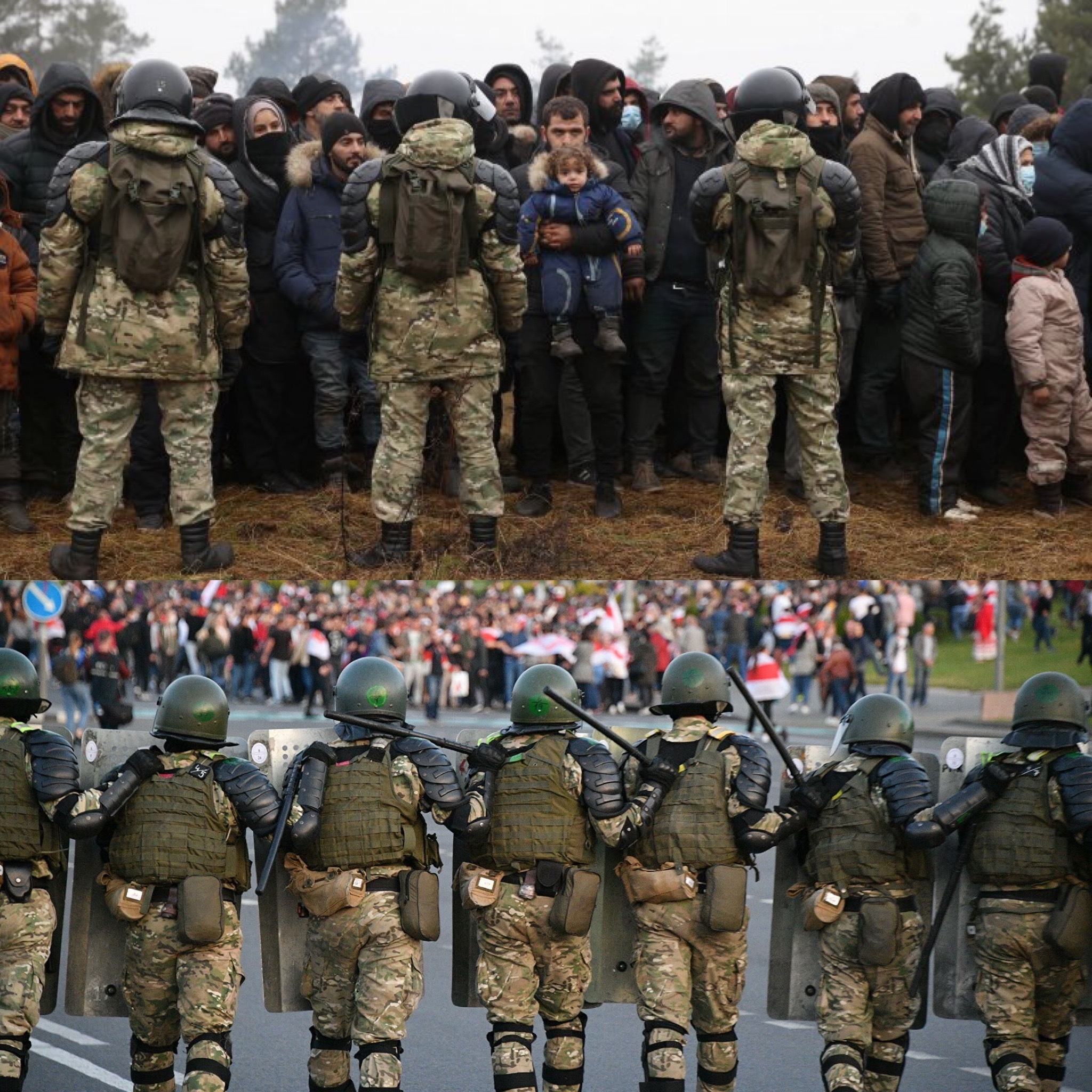
“We will massacre all the scum that you, the West, have been financing. You are upset we destroyed all your structures, all your NGO’s and all those you have been paying for.” These were the words of the ruler of Belarus Lukashenka about the hundreds of people’s initiatives and nongovernmental organizations crushed by the state in 2021. The fact is, the majority of targeted organizations were nothing but human and animal rights activists, journalistic associations, community focused groups and organizations that help people with disabilities. This interview with BBC’s own Steve Rosenberg, however, revealed more than just Lukashenka’s fear of initiatives which are common in Western democracies. It revealed the interconnection between the migrant crisis, the repressions against civil society in Belarus, and the Belarusian dictator’s unwavering thirst for power.
Border Crisis
Earlier in November, the migrant crisis reached a dramatic point when thousands of migrants attempted to storm the Belarus-Polish border under the close watch of the Belarusian military and caused a military standoff. The EU and US accused the Belarusian regime of weaponizing human misery and putting human lives at risk. The EU agreed on the fifth packet of sanctions targeting those who organize the flow of migrants. The EU officials closely worked with the countries of migrants’ origins to stop the flow of migrants to Belarus and repatriate the people stranded in Belarus. Acting Chancellor of Germany Angela Merkel had two phone calls with Lukashenka to alleviate the situation. The EU allocated around 700,000 euros to respond to basic human needs. The international humanitarian organizations still collect donations to help those trapped at the border. Eventually, the Belarusian authorities moved the migrants to temporary shelters and provided migrants with food and clothing. In despair, exhausted by harsh conditions and mistreatment by the Belarusian authorities, more than a thousand Iraqi citizens boarded planes to Iraq.
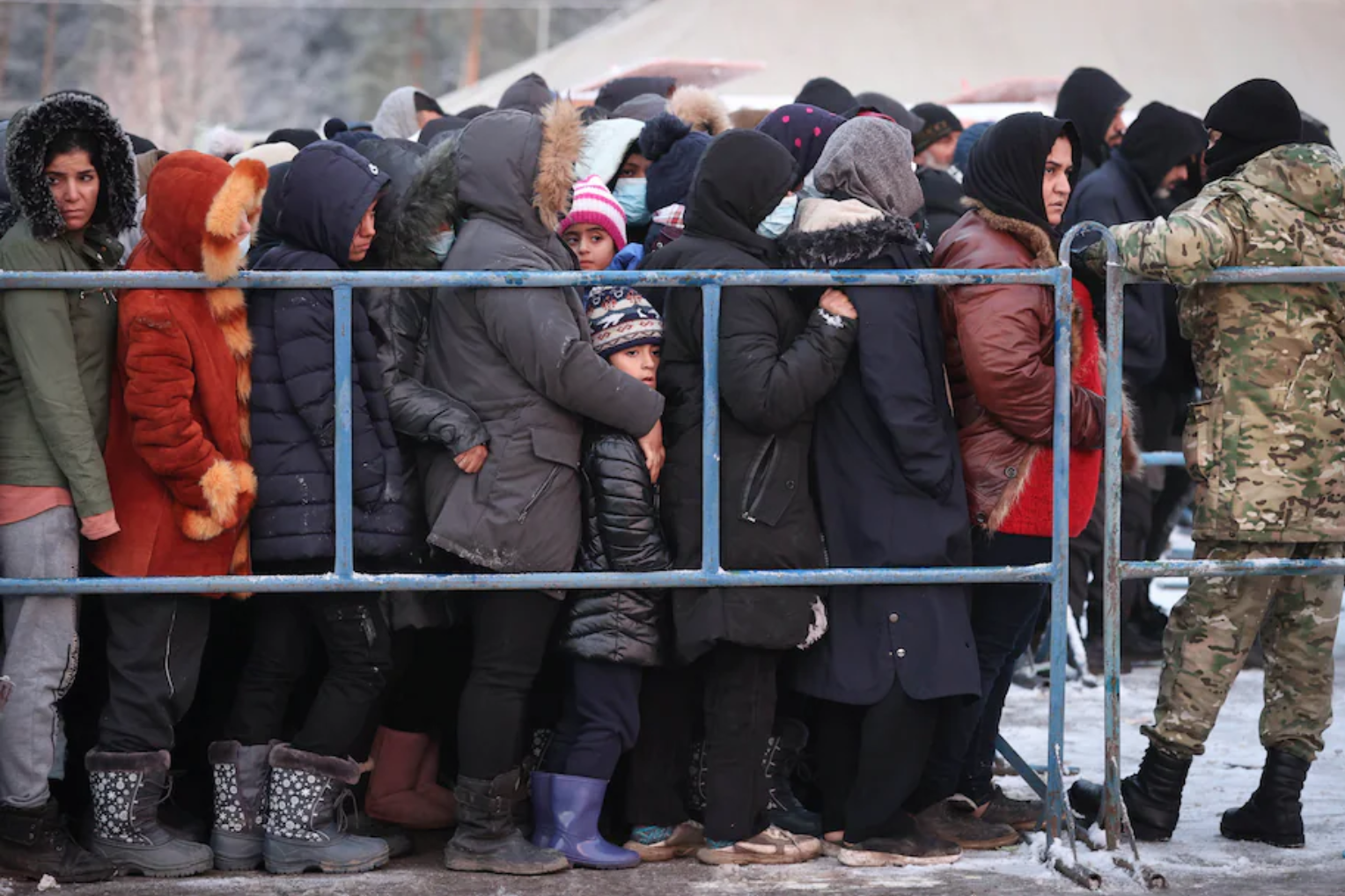
However, some migrants still keep hope to get to the European Union. Fueling the border crisis, Lukashenka feeds in the migrants’ hopes. On November 26, visiting the border and speaking to migrants, Lukashenka pledged to support and help migrants fulfill their dreams: “If you want to go westwards, we won’t detain you… It’s up to you. Go through. Go.” There are reports of the Belarusian soldiers assisting the migrants by cutting the barbed wire. Although the situation at the border calmed down, there is no guarantee that it is fully resolved. Lukashenka repeatedly pressed German authorities into negotiations over the migrant crisis and demanded to accept 2000 migrants, which Germany refused to do. By the latest report, the Belarusian military gave Syrian refugees an ultimatum, to either storm the border or get deported to Syria. The official statements of the Belarusian authorities reveal hostility to the West, particularly Ukraine, Lithuania, and Poland.
Repressions in Belarus
The migrant humanitarian border crisis, described by EU officials as an act of hybrid warfare by Lukashenka, has been naturally receiving a lot of attention in the media. At the same time, the coverage of brutal ungrounded repressions against civil society inside Belarus is somehow in the background. Yet, both the border crisis and the crackdown inside the country share one thing in common, disregard for human life.
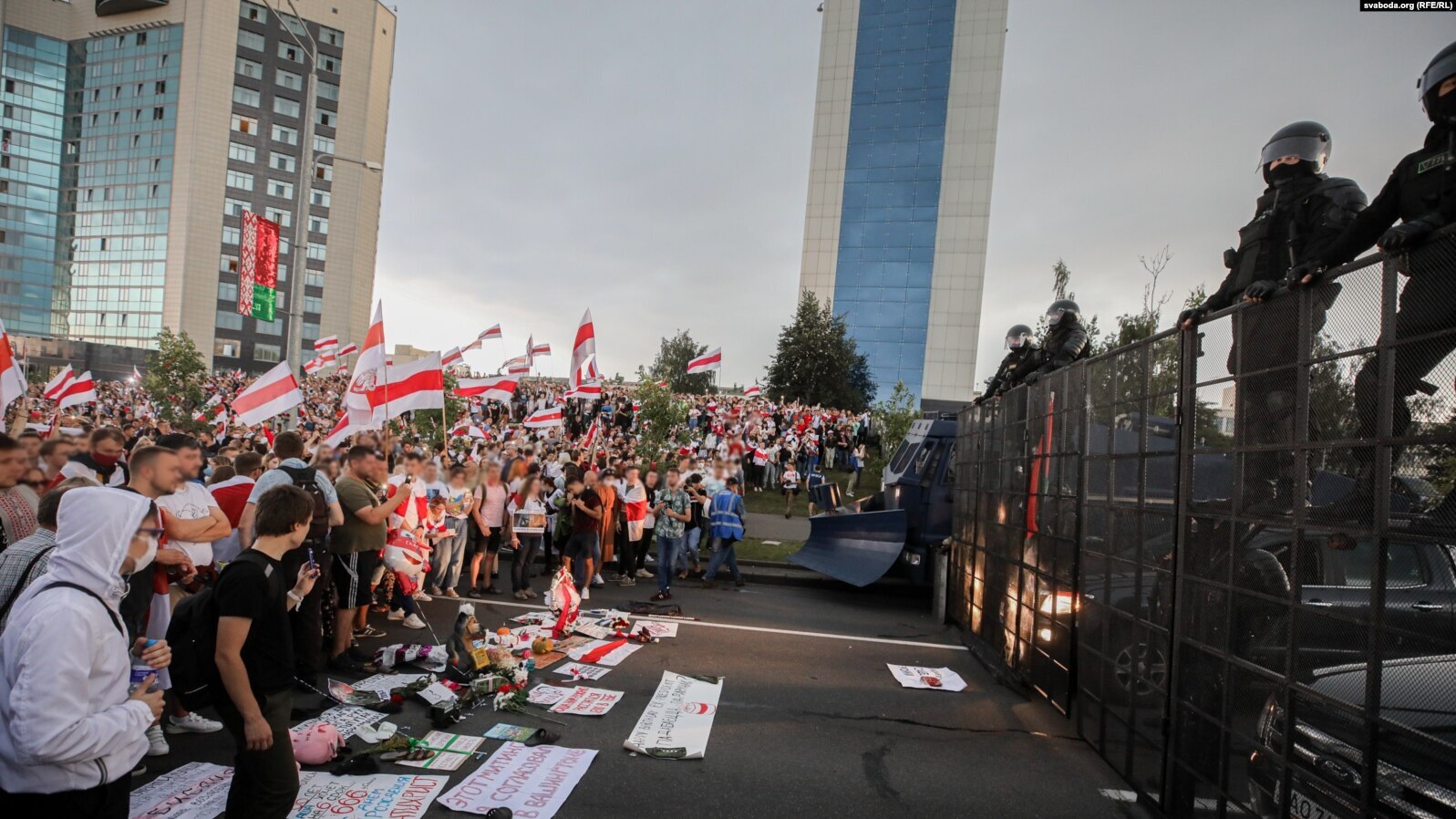
As of right now, the regime continues to double down on repressions against civil society and independent media through raids and arrests, inhumane conditions of detention, and classifying most independent media sources as “extremist.” Here are some recent examples. A journalist for RFE/RL, Andrey Kuznechyk, was detained by plainclothes police showing no identification when he went for a bike ride. They gave no reason for detaining him or raiding his apartment. A medical student accused of coordinating doctors’ protest medium, a channel in the messaging app Telegram, was sentenced to 4 years in prison. Eleven people were arrested for the comments on social media about the Russian paratroopers’ death. Marpha Rabkova, a human rights activist and a coordinator of volunteer services of NGO “Viasna,” is accused of “endangering national security” and facing 20 years in prison. The Belarus State Philharmonic Hall canceled the concert dedicated to the International Holocaust Remembrance Day after the “concerned citizen” complained to the Ministry of Culture that the proceeds would allegedly support oppositional activities. Mother of five children ages 4 through 17, Volha Zalatar, a sociologist and an activist, is sentenced to 4 years in prison for the telegram channel administration. A doctor lost his job for endorsing an alternative presidential candidate during the presidential election of 2020 in Belarus. These are just a few stories from everyday life in Belarus.
Meanwhile, more than 1000 existing political prisoners continue to face inhumane conditions. Volha Harbunova, known for her work with victims of domestic violence, started a hunger strike protesting the conditions of detainment. Like other political prisoners, she was given no mattress or blanket and deprived of receiving parcels from her family with food, warm clothes, and hygiene products. Unfortunately, there is no light at the end of this, as the head of the police unit GUBOPik has recently speculated about forthcoming measures to also punish people for “extremist crimes,” such as subscriptions to Internet media defined as “extremist.” Among independent media recently added to that list are Belarusian independent media BelaPAN and the RFL/RL Telegram and various YouTube channels. Part of this move, the director of BelaPAN media, Irina Levshikina, was arrested and charged with creating an extremist group.
Ukraine & Eastern Security
The danger of Lukashenka’s government, however, stretches far past the threat to his own people or migrants. In the past two weeks, facing the fifth packet of sanctions and the united position of the European Union and the US, Lukashenka intensified the warmongering rhetoric against the neighboring countries of Ukraine, Poland, and Lithuania. Hit by the lost legitimacy and Western sanctions, Lukashenka has been masterminding other possibilities to retaliate against the West. Since July 2021, fake Facebook accounts have been advertising the opportunities of easy migration to Europe through the Belarus route. Facebook linked those accounts to the Belarusian KGB and removed them from their platform, but recently, new accounts surfaced on Facebook falsely accusing Poland of escalating the border crisis.
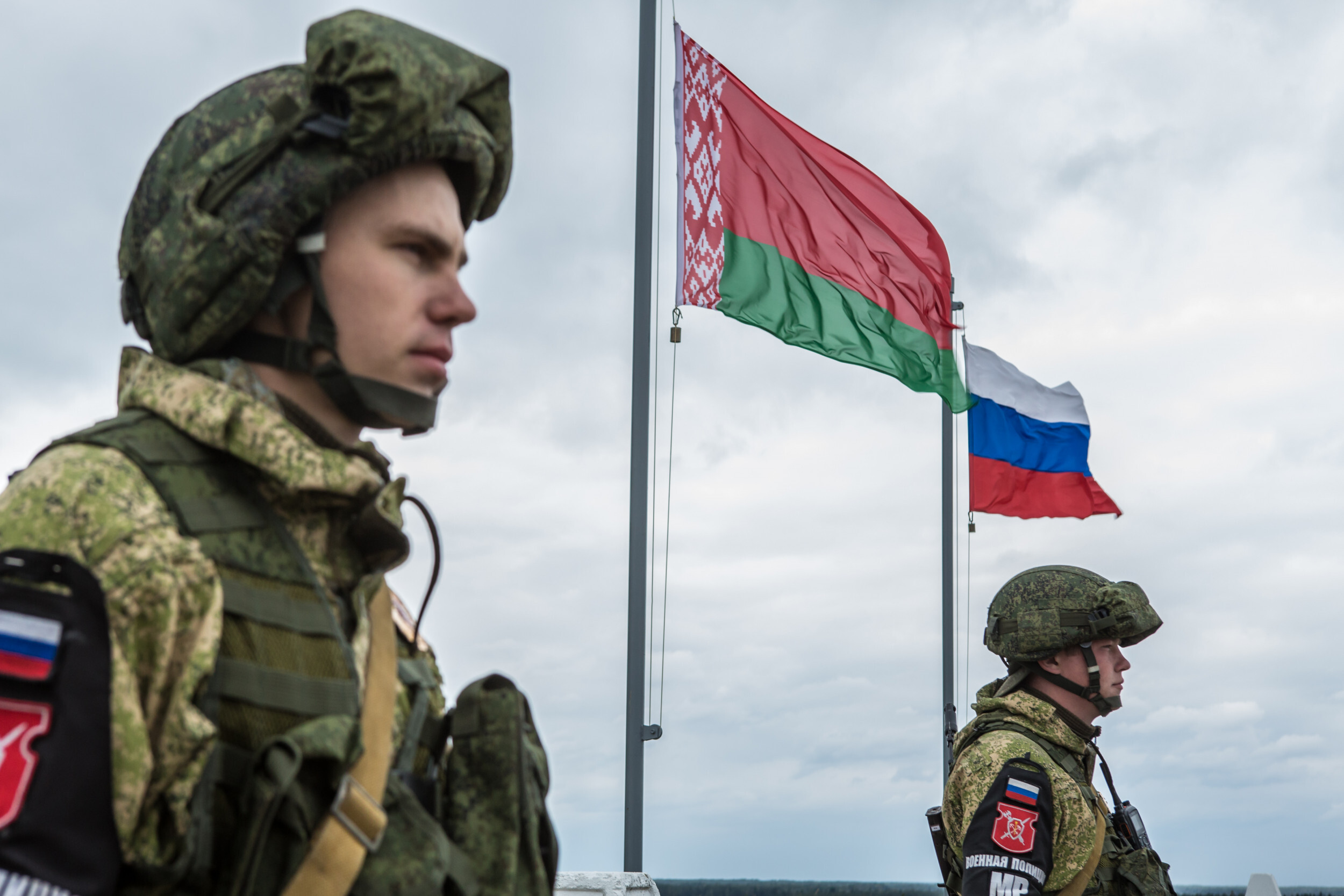
In recent weeks, Lukashenka dangerously increased the rate of manipulative statements against Poland, Ukraine, and Lithuania for hosting the Belarusian political refugees and supporting Belarusian democratic opposition in the last few days. In an interview with a Russian media RIA Novosti, Lukashenka welcomed the Russian nuclear weapon in Belarus, opted to be a Russian ally in a possible war against Ukraine, and recognized Crimea as de facto and de jure Russian territory. The Minister of Defense Khrenin also announced joint Belarus-Russia military exercises on the Russian southern border with Ukraine.
On November 4, the Belarusian authorities accused Ukraine of violating the Belarusian border by the Ukrainian military helicopter. The accusation comes during a dangerous Russian military buildup on the Ukrainian border, the increased military and political cooperation between Belarus and Russia, and a standoff with the West.
Response
The adaptation of new sanctions against Belarus by European Union, the US, the UK, and Canada for orchestrating the migrant crisis and the violation of human rights is of course a step in the right direction. The US officials also held a series of talks with Lithuanian, Polish, Latvian, and Swedish officials on working together to respond to the challenges in Eastern Europe. Yet more needs to be done to ensure the European security and preservation of democratic values that originated there. While the cost of opposing Lukashenka-Putin axis of autocrats is high, many Belarusians inside the country and across the world continue to fight against the regime. The most prominent exiled leader of Belarusian democratic forces, Sviatlana Tsikhanouskaya, actively works to gather the support of the world leaders for the democratic opposition to Belarus’s authoritarian and illegitimate ruler. To that extent, Tsikhanouskaya, one of the 25 most influential women of 2021 according to Financial Times, recently spoke at the EU Parliament, calling on the international community to proactively respond to the violation of human rights in Belarus. She was also recently invited to participate in the Biden’s Summit for Democracy, where she will address the struggle of Belarusian people fighting for their democratic future.
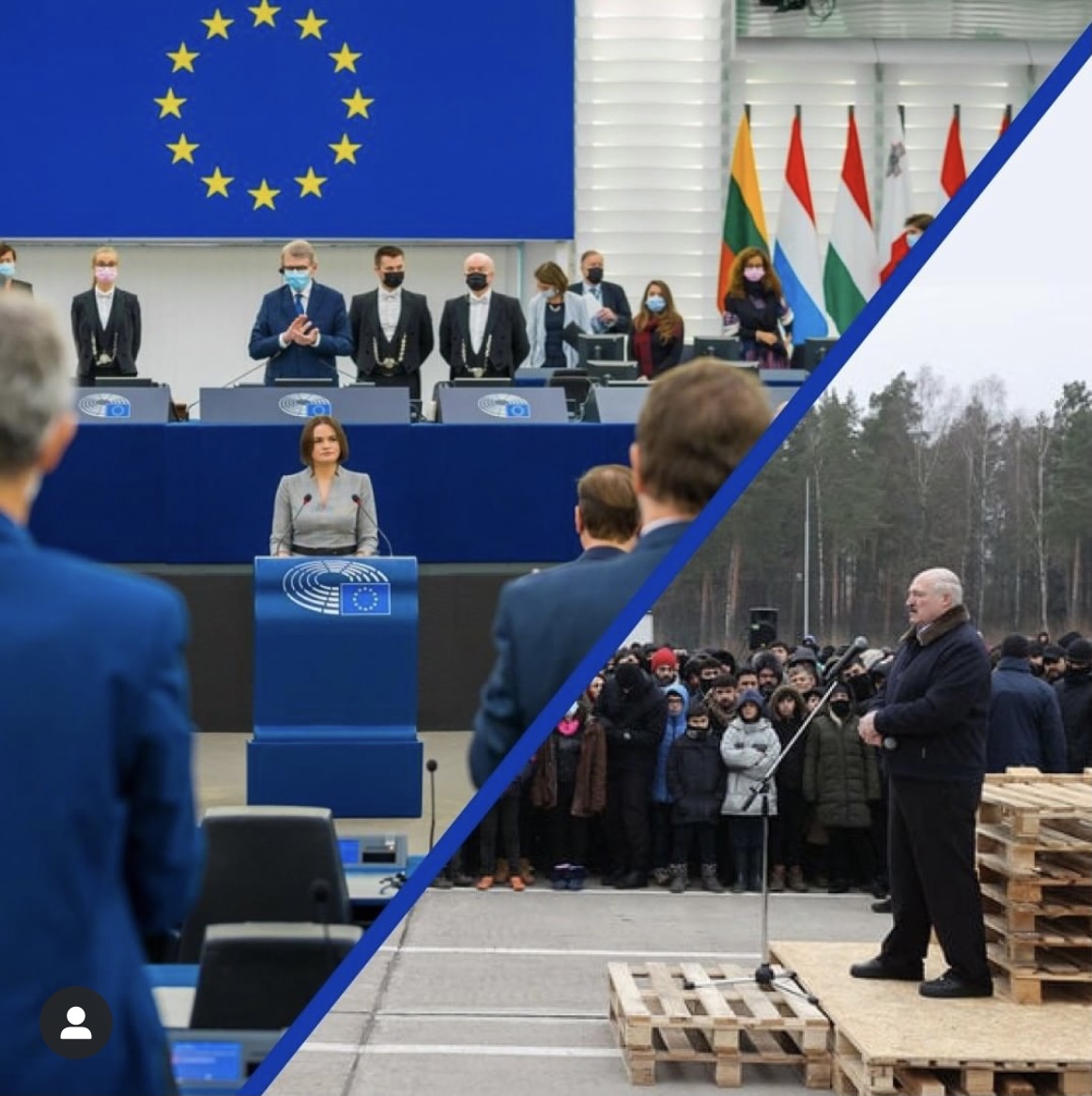
The United States, currently being torn between addressing its strategic competition with China and military threat to its European allies from Russia, has to pay close attention to the situation in Belarus. While Ukraine continues to be at the forefront of maintaining Russian aggression, another Belarus neighbor Lithuania has been most vocal in its foreign policy regarding the Chinese abuse of human rights. Simple glance at the world map provides an insight as to why this region is involved in standoff with both Russia and China and why they are seeking cooperation with the West. A truly democratic Belarus can, therefore, prove to be another strong partner to the US in the future. This opportunity, however, is fading away by each day of inaction, as Lukashenka is seeking closer integration with Russia, while China ponders “joining hands with Russia and Belarus” to punish Lithuania.
